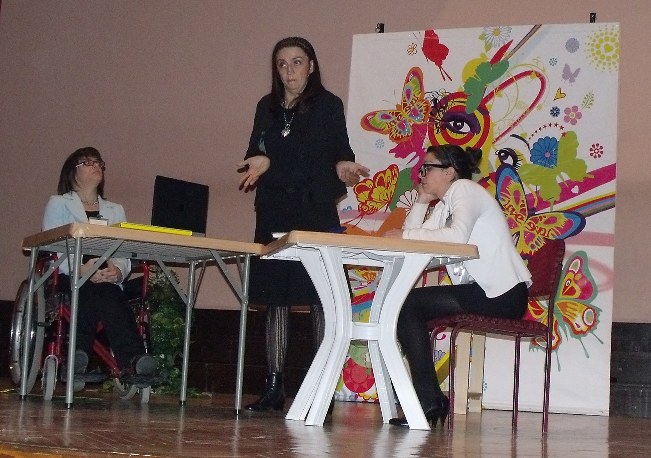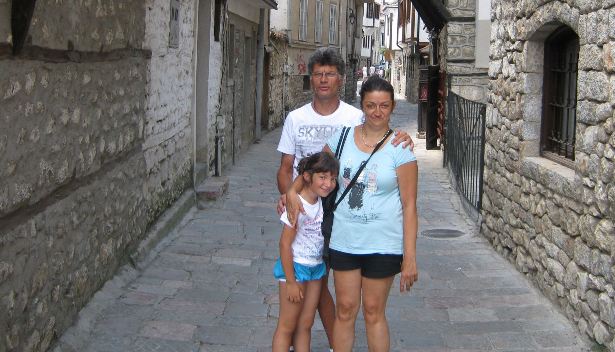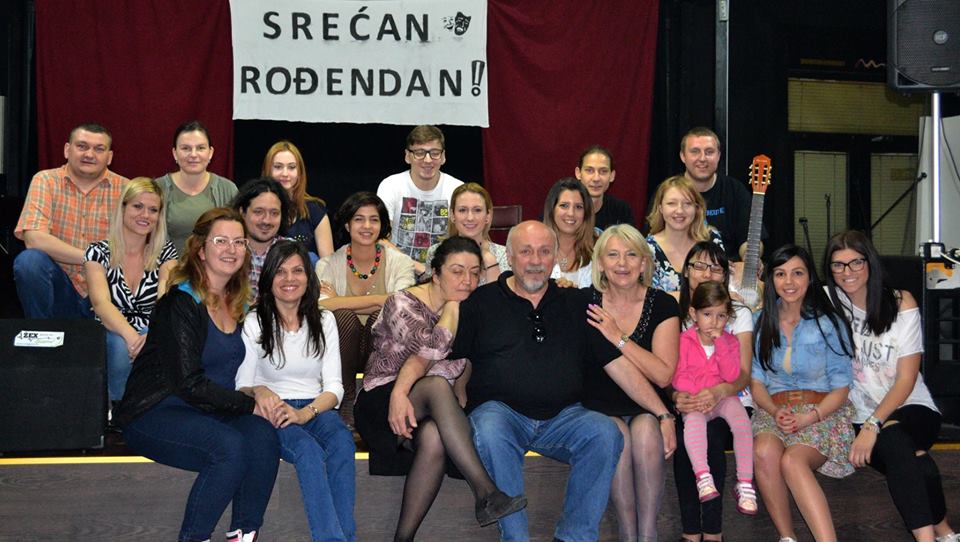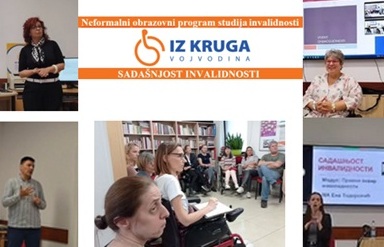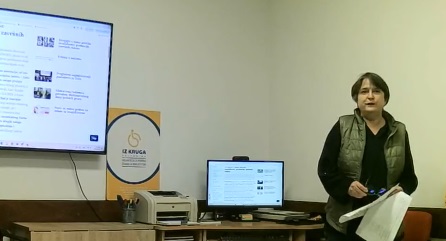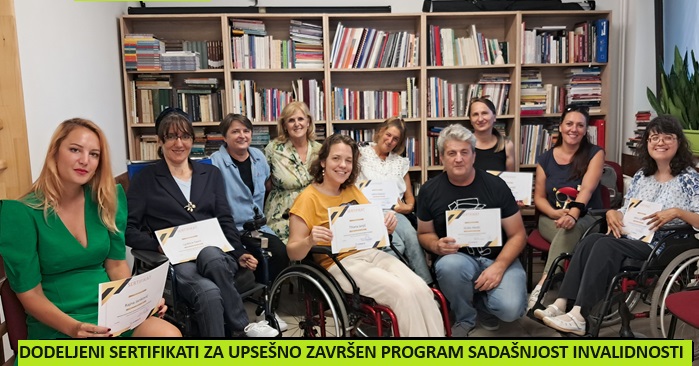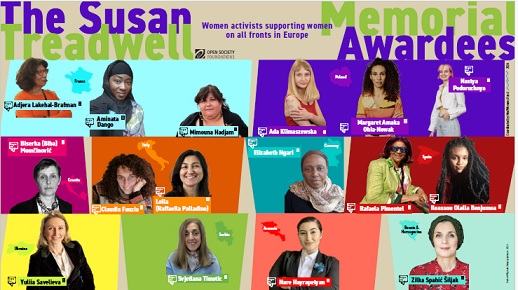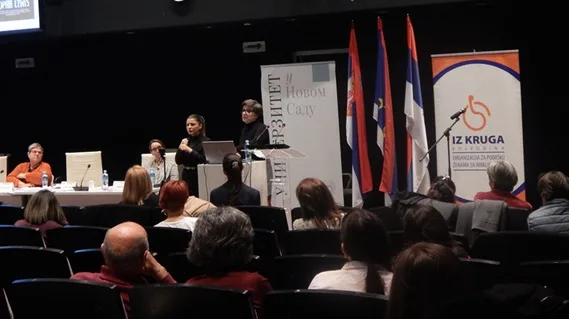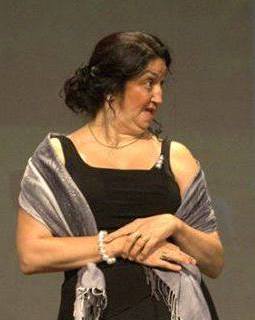
Born in: 1968
Place of birth: Valjevo
Education / occupation: BA in Economics, Welfare Issues Assistant to the Mayor of Valjevo, Serbia
Interests / hobbies: acting and theatre, creative workshops, photography
Me in two words: energetic and persistent
Things she avoids doing: lying, deceiving and rejecting
Do you perceive your disability as a part of your identity?
‘Yes, because I’ve been a member of the Movement for the Rights of People with Disabilities for twenty years.’
What would you say to your twenty-year-old self?
‘To be persistent in her ideas and wishes and to try to fight for things she thinks are fair and just.’
MY EARLIEST MEMORIES
The first thing that crosses my mind is the neighbourhood I was growing up in, and my friends from school. Our friendship was thriving thanks to our teacher who knew how to direct us towards each other and how to unite us. There were three other students with disabilities beside me: two with mental disabilities and one with a visual impairment. Back then there was more inclusion than today, although the term itself wasn’t known those days. The differences between us weren’t important. If a teacher thought that somebody has the potential to be an A student, she wouldn’t let it be otherwise. She forced me to be better, because she knew that I could achieve great results. We would go with other pupils to recreational camps – we would regularly go to Divčibare and stay for 10 days in the nature. We developed remarkable bonds. We were so close that we wouldn’t even mind sharing our clothes. If it was raining and your socks were wet, it really didn’t matter whose socks you would borrow. We shared everything. Most of us are still in touch. Throughout my childhood I actually didn’t even realize that I am a disabled person. I felt the same as everybody else. My childhood wasn’t affected by any kind of injustice. There were mostly older boys in my neighbourhood. Our parents didn’t forbid us to hang out together and there wasn’t any kind of intolerance or bad relations. Twice a year I would go to have a therapy in the Trepča spa and I remember how the whole neighbourhood would greet me when I came back. They would notice how much I have improved, even when there was not any improvement at all. It was a very supportive environment, a very encouraging one. With the support of my neighbourhood friends I learnt to ride a bike and roller-skate (back then we didn’t have rollerblades). I wasn’t an exception in any way from the rest of my generation, nor did I see myself as a special person, a person that would live a different life than most people. I had some arguments with my parents even when I was a child because I didn’t like them to impose their opinion on me. I kept that trait of my character until today: nobody but me knows what’s best for me. It is one thing to give advice, but to imply something is out of the question. When I was a child I wanted to be a teacher or maybe even a doctor. Those two humanistic jobs were probably a product of the environment in which I was growing up. We lived in an elite part of Valjevo, in the neighbourhood full of doctors and high school teachers.
VISIBLE DISABILITIES, BUT HIDDEN TALENTS
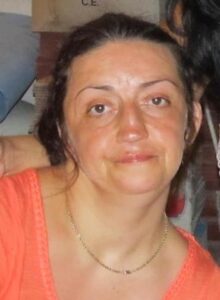
When I was eleven years old I went to France to be examined by a neurologist, where I was told that I don’t have any damages to my body, except for the fine hands coordination. They recommended practising typewriting. There I also got a chance to meet a boy with CP. This boy was their state champion in archery. That experience in France, where they invest so much in medicine, that in return helps their citizens, stuck in my mind forever. Whenever somebody has some form of disability, they are actually given a chance to discover a new talent! The idea that each of us has some kind of hidden talent and potential was the most positive affirmation I had heard until then. Thanks to that guideline I managed to achieve results. It wasn’t easy to get that kind of encouragement in our society. I tried playing basketball, but it didn’t end up very well. Not because I made some terrible mistakes in the court, but because they didn’t have enough patience for me. I just needed a bit more attention and patience to achieve results. However, the opinion that it would be just enough for me if I finish school prevailed. Back then, people with disabilities would rarely finish school, they would primarily finish special schools. They wanted to enrol me in such a school, but my mom was very explicit about it. She said no. When I turned seven, I wasn’t even summoned to start school. I remember being sad for not being able to start school with my kindergarten and my neighbourhood friends. I was summoned for a special school, and then we had to intervene. I did a psychological test and the result left no doubt. I could go to regular school. One of our neighbours worked as a Serbian teacher, so she took it upon her to try to get me into the school where she was teaching. That was also the school that I was supposed to go based on the area where I lived.
(UN)FAVOURED AND OTHER KINDS OF EDUCATION
Things started to change drastically in high school. There was intolerance, not particularly towards me, but the teachers were treating all the students differently. I first started grammar school, but soon I got appendicitis so I had to be transferred to a school closer to our flat so that I had to walk as little as possible in the post-op period. Everything was going smoothly, but my parents were afraid and they wanted to protect me. That’s how I was transferred to a medical school. There was much more discrimination there than in any other place. The discrimination came from pure ignorance of the term disability. I can hardly remember anything good from that second year of high school. I remember a friend who influenced me a lot because his dad was a neurologist. He encouraged me to do everything that was in my power and he noticed that I could walk straight, and that I could even ride a motorbike. I remember very well how that boosted me with positive energy, how it gave me the strength and courage to fight to be equal with others. The rest of the people there weren’t very keen on me. Medical school in Valjevo was famous because there was a maths teacher there with a very serious visual impairment. People called him Dummy, but I didn’t realize back then that there was something offensive in that nickname. Due to his eye condition, he wasn’t able to get his knowledge across. As much as the students were ridiculing him, he neglected himself just as much. After my experience in grammar school, in this school I felt as if I could teach maths, too! By pure accident, I came back to grammar school later in my life. This proved to be a turning point for me because I couldn’t choose any course in science since I had missed a year of maths.
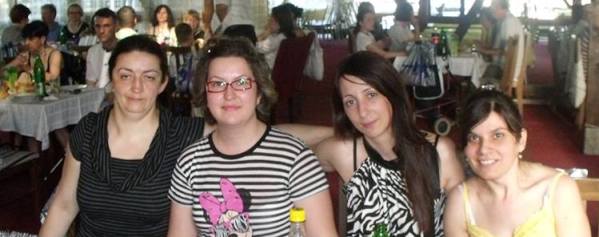
HOW TO SIT STILL WITH CP?
My father had prejudices about my skills, my survival and struggle, so he insisted on me enrolling a technical school where he used to teach. I started a course in chemical technology and made a few good friends who I practised in the lab with. I could finish that school without major difficulties, but after a month since the beginning of the school year, the head teacher told my mom that I could set a lab on fire and that I must leave school. So I left school and at the end of September the same year, my mom and I were rushing from school to school for three days trying to enrol me somewhere. I was doing all kinds of tests, had great results and got a recommendation that I should engage myself in social studies. The principle of the grammar school said I could do it, and so I did a course in legal and administrative work. I didn’t like legal matters much, nor did I become keen on them during my education, but I still managed to finish the school. In the beginning I had some awkward moments with my law teacher, who was a very eccentric person. He demanded from us to sit still with our arms behind our backs, which of course I couldn’t do due to my involuntary movements. He was annoyed because of it. Within the first month everybody, except me, already knew how to behave in his classes. Once I raised my hand to ask him something, not knowing that on his lessons there is a special rule you need to follow if you want to raise your hand. Later, whenever it was my turn to say something in his classes, he literally had to tease the words out of my mouth, that’s how much I was afraid of him. I managed to get a pass grade at the end of school year. Luckily, the situation didn’t last. His approach softened up a bit once he realized I was a kid from his neighbourhood. He didn’t force me to sit still in his classes. If he would get really annoyed with my involuntary movements, he would send me for a walk and then I could return to his class. I had to adapt to that, what else could I do?
A CERTIFICATE IS(N’T) A TICKET TO AN INDEPENDENT LIFE
After grammar school I enrolled Economics in Kragujevac and finished my studies timely. There were two professors at the university that gave me headaches, while the others I remember fondly because they didn’t show any intolerance. Accounting was problematic for me because I couldn’t write fast enough. I almost lost the right to continue my studies, which made no sense at all because accounting is done by computers anyway. The other problematic subject was mathematical-economical models and to this day I have no idea what they are used for. I didn’t manage to do as much as it was needed on those classes. I remember I was literally chasing that professor down the hallway, and he was avoiding me at all costs Thanks to my persistence, I managed to face him and show him that after all, I still knew enough. I was motivated to gain independence, to become completely independent, and not to do things the way other people had decided for me, but according to what I would decide.
Discovering injustice in the real sense of the word came after my studies, when I was searching for a job. It happened quite often that I would get among the top candidates, but the moment they saw me, that door would be closed. Finally, I started working for a trading company in Belgrade, where I did my apprenticeship in the department of planning and analysis. Unfortunately, after two or three years the time came when most companies in our country were going bankrupt and the company I was working for went out of business. However, I was lucky to get a certificate from that company stating that I am an accountant. This would come useful when I started working in the Association for CP in Valjevo. In the meantime, I was trying to find a job in various companies, I was applying for jobs and I was waiting. It happened sometimes that they would say I was accepted, but then they would make me wait forever, only to tell me that I couldn’t work after all because of my disability. I’ll never forget the day I went to a job interview at Delta bank (today’s Intesa). There were really many candidates, but at the end the two of us were accepted: one girl and I. The girl started working soon after that while I was waiting and waiting. They were simply not calling me. I went with my mom to their premises, only to be told by the director of the bank that I couldn’t work there because CP is contagious. I was utterly shocked! To make it even more ironic, that lady is my dad’s old friend’s wife, so she has witnessed my growing up, my education. It just didn’t make any sense that she could be that ill-informed about CP. After that, my mom went to see the President of the Municipality. The President of the local Executive Council knew my family and me. It took approximately a week since that talk and I got a job as a Secretary of the Association for CP in Valjevo. That’s when my activism in the Movement of the Disabled People started. I was lucky that there were many family friends working in the Executive Council. The Ministry of Labour sent suggestion letters to local self-governments to employ disabled people. That was what additionally motivated me. All of these things set my future direction in terms of work. It turned out that I was doing everything except economics, apart from doing accounting for the Association.
MALE FRIENDS AND ALL OTHER MEN
Just like my mother, I used to grow up surrounded by men and I had friendly relationships with them. I had a lot of male friends around me and I didn’t see them as the opposite sex, as men or potential boyfriends. In my eyes they were simply friends. That’s why I had problems with my girlfriends who would fall in love with my male friends. My greatest love story involved a boy called Bojan. It was widely believed in Valjevo that I was in love with him, and I claimed I wasn’t. It was a kind of brother-friend relationship. Because of various circumstances, and because of the girlfriend he now has a child with, we had to end that story. Regardless of us not being friends anymore, I still remember it as a very intense and remarkable relationship. Somewhere in my second or third year of high school, there was a boy I fell in love with without knowing that that’s how it feels to be in love. My mother wasn’t very experienced in that field as her marriage wasn’t really a happy one, so there wasn’t anyone for me to talk to about falling in love, emotions and passion. I got my first period in the seventh grade and it just happened that my teacher was visiting us then. She helped me realise what was happening with my body more than my mother did. The boy I fell in love with felt the same, but I tried to ignore it not knowing what was going on. I couldn’t admit it to myself, nor did I have somebody to give me some advice. I was probably afraid of that completely unknown feeling, feeling of uncertainty, of everything being new. It took me three years to figure out what it was. I went to the seaside with my girlfriends from university and when I saw that boy there I nearly collapsed! I couldn’t walk back to my room, that was how much I was trembling. My legs became numb. That was the first time that I was faced with the intensity of my feelings. But our lives went in different directions. My first sexual intercourse was… Traumatic. Later I found out that the boy I had the intercourse with was actually told to rape me. One of my friend’s girlfriends was jealous and told him to do it. It took me some time to even grasp what had happened. Luckily, it didn’t leave any permanent trauma, but I got pregnant and that caused problems with my family, especially with my mother. She was still there to support me but she was so frightened: ‘What are we going to do now and how?’ The gynaecologist I went to see played a crucial part. He told me I didn’t deserve life surrounded by negative things. I had an abortion quickly after that, and only my closest friends knew about it. Surely that left its trace on me and has led to extremely harsh endings of some very close relationships and friendships.
REALTIONSHIPS WITHOUT A BEGINNING, BUT WITH HAPPY ENDINGS
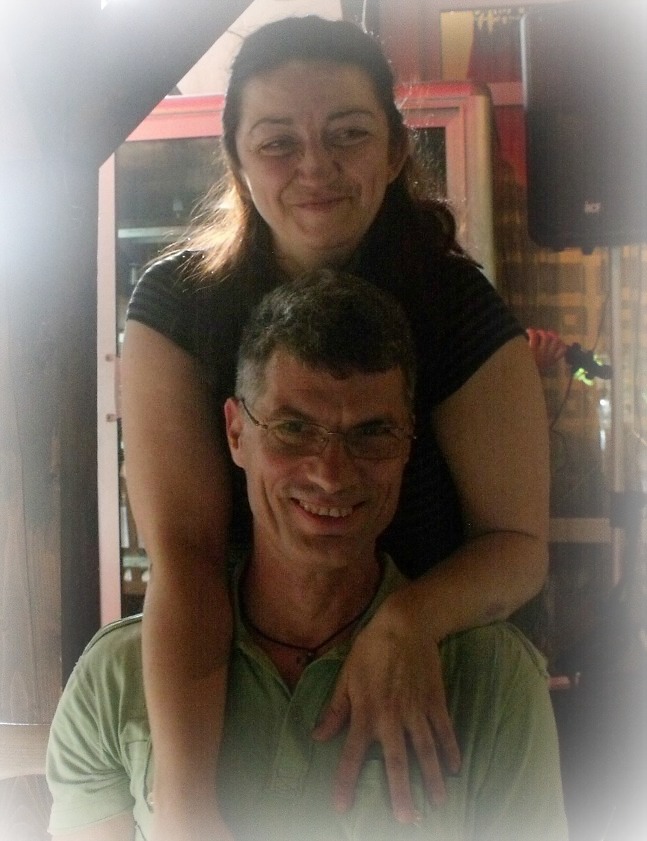
Mikica said that the first time he saw me was during a summer vacation. The Association of CP and Polio of Serbia organizes a seaside holiday every year, so I lead a group from Valjevo there on behalf of the Association. I was already active in the Association: in the editorial office, in the administrative board, in cultural-organizational activities. Since I took up so many activities, I guess it wasn’t very difficult to notice me. Mikica was with a girl from Novi Sad back then, but I don’t remember them at all. He apparently remembers everything: what skirt I was wearing, what colour my T-shirt was. A year or two later, when the Organization Živeti uspravno (Living Upright) was formed in Novi Sad, Valjevo, Belgrade and Zaječar, we were organizing various seminars, meetings and gatherings, so I was coming to Novi Sad often. Mikica saw me on some of these occasions and he was trying to find out when I would be in Novi Sad the next time. There was some chemistry between us, although our personalities were very different. My husband had the feeling of being different since his childhood and had parents who were overprotective. I can’t say that he wasn’t fighting. He was, but only for the things he loved doing, while I was fighting for everything.
GIVING BIRTH TO MY DAUGHTER AND MATERNITY
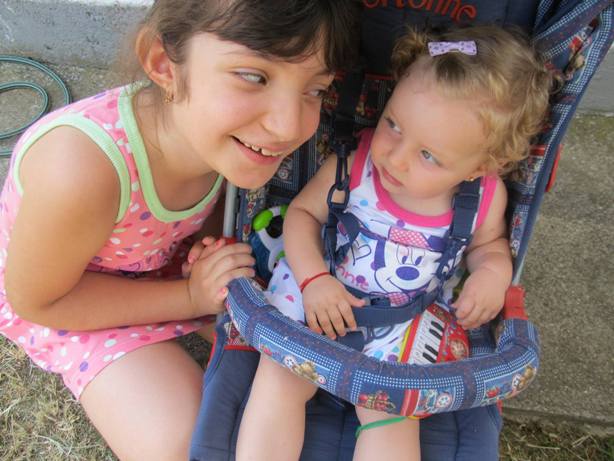
While I was going to medical checkups related to CP, I was told that in my case CP didn’t occur because of some organic or genetic disease, but that there was a trauma (injury) during my mom’s labour. When my mom came to hospital, I was not perfectly positioned for birth. The gynaecologist had already pointed it out. When her labour started, her gynaecologist wasn’t there, as there was a change of their shift, so the midwife was trying to do her best in that situation. My mom ended up in a coma. Since my father was away serving army in Ljubljana, my mom’s brother accompanied her. When he was asked whom they should save he quite expectantly said: ‘My sister.’ They were trying to save my mother and were pulling me so hard that I ended up with a huge haematoma on my head. Luckily, it subsided and didn’t leave huge consequences, apart from unwilling movements and partial damage to my hearing which I discovered much later.
MARIJA’S COMING TO THIS WORLD
The moment when you are giving birth has to be the happiest moment in any woman’s life. When I gave birth to Marija, she got a 9 out of 10 score and I was immediately told that it was because I had a C-section. They knew I would make a fuss because of the score, so they had to explain to me why: C-section is not a natural way of delivering a baby. In the beginning, they didn’t bring Marija to me because apparently she wasn’t strong enough to suck milk. In reality it was me who couldn’t breastfeed her so my breasts got inflamed. My best friend had a five months old baby at the time, so she sent me her breast pump. I also had a friend who was specializing in neonatology then and who was there by my side treating Marija as one of her own kids. Soon the midwives started to bring Marija to me so I could breastfeed her and she was breastfeeding till she was thirteen months old.
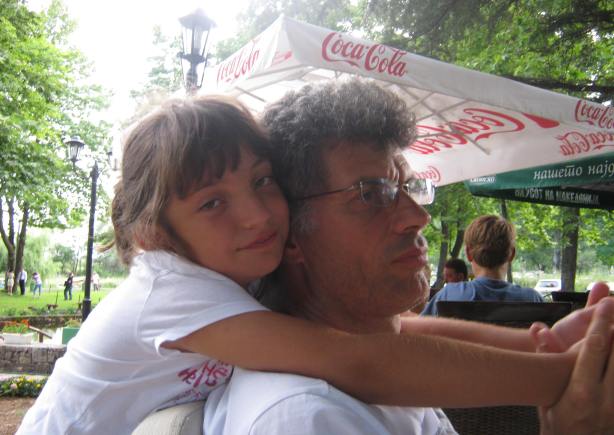
DISCRIMINATION IS HEREDITARY
Instead of society being more supportive, and instead of understanding the position of a child whose both parents have disabilities, Marija was discriminated very early in her life. As a mother I can only assume what is going on in her head, but I can’t completely understands how she feels and how she feels about our disabilities? Some kids are either making comments or making fun of it. I was explaining a lot of things to her but how can she understand any of it?
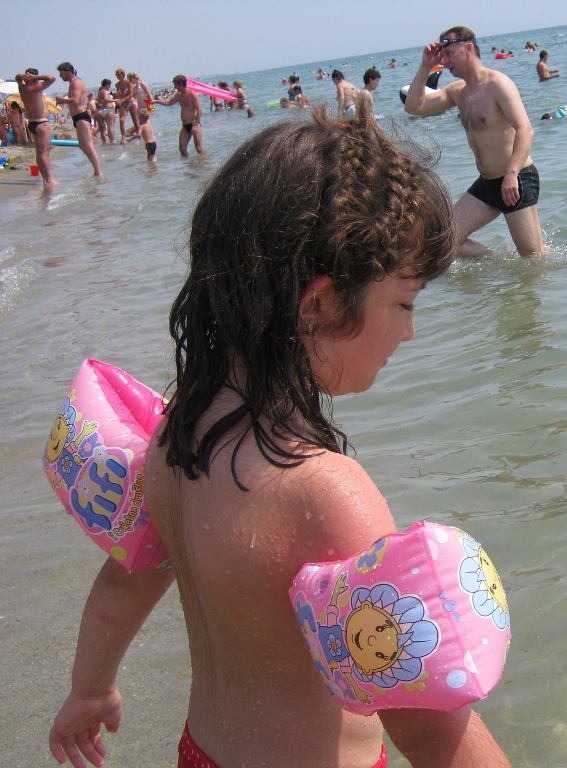
ABOUT THE DISABLED PERSONS’ MOVEMENET
My way of thinking about how people with disabilities should make their way through life is different than the usual way of thinking. I find it very sad to see how many of them live in the protected world, surrounded by their parents for life. They never mustered enough strength to leave their homes, to feel the life, to feel every aspect of it, the beautiful and the ugly ones. There are a lot of them who live without any kind of support and remain at the same level of slower development. One thing I am absolutely certain about, I can even guarantee it: if children got supported immediately after they had been diagnosed, they would develop to be different persons. Some children started talking at the age of fifteen, when I took them to a speech specialist, thanks to various projects organized by the Association. You can read so much from their bright eyes; you can clearly feel their emotions. I don’t blame their parents because they had no initial support from the society, community or anyone else. It takes enormous courage to step up and speak up, to confront all the unpredictable situations, and to fight for your place under the sun. If experienced people talked about it, they would encourage the future parents, too. That’s why we should share our experience. I personally put a lot of effort in many projects and I don’t keep the knowledge only to myself. What’s the use of that? When you share it your experience multiplies, it gets an additional value. I know the level of vanity and the need for domination that exist in the disabled persons’ movement. Many of us aren’t ready to admit that somebody else knows something more than us, nor are people ready to admit that experience should be freely and mutually exchanged. While I was the Chairperson of the Association for CP and Polio (2003 – 2009), we really contributed to changes: we worked on Preokret (Turning Point) magazine, on changing the legislation, on the strategy development and Antidiscrimination Law, etc. In our premises in Valjevo, we offered services of a physical therapist paying visits to children at an early age, so that their psycho-physiological potentials are maximally achieved. We did major projects in physiotherapy in patients’ homes, focusing on physiotherapy and family therapy, as well as on the work with speech specialists. Some treatments are invaluable for children with disabilities, but our healthcare system doesn’t support them. I support the combined approach of psycho-social support, so that those children can contribute equally to the society. I believe this approach brings visible results.
In the Town of Valjevo I launched a theatre festival of Drama Creation called ‘We Too Have a Gift.’ It was created for the disabled people and the festival takes place during the Solidarity Week with people having CP and polio. The festival is the result of a drama club that personally helped me a lot. I drastically improved my speech in my forties. Had I taken up acting earlier, I might have been able to speak completely clearly today. We have witnessed amazing transformations in drama classes: a person who couldn’t read would turn into a famous actor at the festival and got the biggest round of applause. It is an inclusive theatre in the very sense of the word, founded on the mutual contribution of all of us. We played many famous plays such are Ožalošćena porodica (The Bereaved Family), Izbiračica (The Fastidious Girl), Besparica (Penniless). The play Muško–ženski razgovori (Dialogues between Men and Women), based on Duško Radović’s book, had the biggest success and we did it more than twelve times. Our first play Tragovi (Traces) was based on the oral history of Milica Mima Ružičić Novković, but the realisation of it was rather poor. I broke my leg while we were preparing it, so I couldn’t be involved and the director didn’t have enough strength to complete it properly on his own. I remember that on the day of the premiere Mima said something that deeply touched me: ‘But my life wasn’t sad.’ The interpretation of the play sadly went in that direction, because the main actresses were living in a closed and overprotected world…
https://www.youtube.com/watch?v=-OcD8GtpOWc
THE HARDEST FOR ME WAS….
To face the injustice at all levels. Parents, out of their best intentions, do everything they can for their children and quite often make mistakes or make us feel less worthy. That’s something we have to deal with. My family relations were difficult, especially the relationship with my dad and my sister, who knew what CP is and who witnessed my successes, but still have a distorted, even unjustified view on it. In our families, parents have a different relationship with male and female children, with children with and without disabilities, and it is obvious who gets more affection. No matter how much I try to rise above it, it is still present and irritating. The moment my sister was born she became my dad’s pride. He wanted to take her everywhere with him. She was the star merely because she exists. I was important when I would bring home a certificate or when I achieve something. I was hurt by it so much that I forbade my dad to boast about it. I am not a boastful person by nature, so I didn’t need anyone else to do it on my behalf. I was really struck by pain when my sister, while expecting a baby, was secretly searching the Internet about the Down syndrome and CP because she was afraid her baby might have one of these. She didn’t want to talk to me about it at all, while it was me who could provide most information to her. She knew my field of work and how much material I had about risk factors. We grew up together, and still she was prejudiced. That really hurts. I tried to talk to her about it, but we never completely sorted it out.
POLITICAL ENGAGEMENT
The spite and gossip factor in political circles is more powerful than any kind of discriminating relations. I became an Assistant to the Mayor of Valjevo quite unexpectedly. The Local Movement of Valjevo appointed me as a candidate pretty much out of blue. One party left the assembly and a new coalition was formed consisting of representatives of smaller parties. I had a day to decide whether to accept the function to be appointed to or not. I wasn’t even thinking what politics might bring. If I had, I might have not got involved with it. I was drawn by the idea to do something for the welfare of the disabled. That was my reason for accepting it. Generally speaking, there aren’t many activists in this field. Although sometimes I say that I wish I hadn’t accepted it, in reality I am satisfied I said ‘yes’. I managed to do some positive things, to push forward some projects that I took over when they were almost impossible to implement. All that unfinished business could collapse on me. But luckily it didn’t happen. With the experience that I have now, it is clear to me that I wouldn’t start any political activity again because that’s just not my cup of tea. I am too practical, I like to encourage people to act and I like to expand my views. It’s hard for me to be in politics. What remained as a kind of minus in my political career is the draft of the Welfare Strategy for the Town of Valjevo. I started the project with great expectations and hopes. We listed our priorities and gathered loads of material, but the political circles of Valjevo didn’t approve (of) it. Some very hot issues didn’t even get the chance to be part of that draft. That’s what stopped me from pursuing it. We were working on a Local Action Plan for the People with Disabilities in the Town of Valjevo. I claim it is an excellent act. I never got a reply and I don’t even know where it is now. Its adoption procedure had been initiated officially, but the Mayor didn’t even make an announcement on this matter. Why would I work on the Strategy if nothing would come out of it? How can I motivate the team to work on the next project after such an experience?
UP CLOSE AND PERSONAL
How I feel about my body doesn’t differ much from how an average woman feels about it. I am rational when it comes to my body. Of course that our bodies are more beautiful when we are young and that things change after you give birth. When I gave birth to Marija, the only thing that mattered to me was her health and what the best for her was. I wasn’t too occupied with the way I looked. I have never been obsessed with my body. My girlfriends used to tell me how I should emphasize my breasts, my beautiful legs and my other attributes. I didn’t pay much attention to that nor was I doing anything special when it came to my body. What sometimes could bother me, and is related to my disability, is that in some photos I make a face, some odd facial expression, or uncommon hand gesture, a posture that perhaps no one else notices but me. Sometimes I get upset about it, so I ask myself: ‘Why did I have to do it so I turned out like this in the photo? I really didn’t have to do it.’
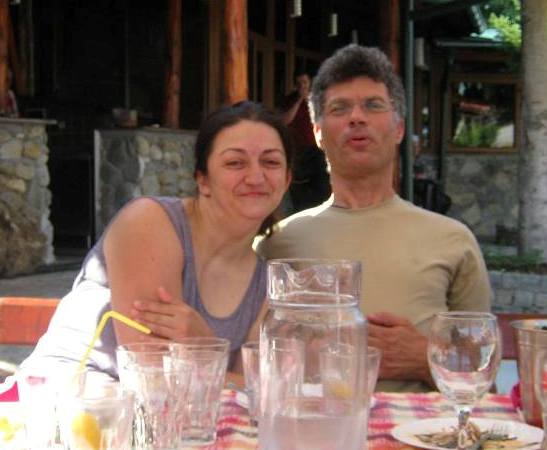
DEFINITON OF CP FOR SOMEBODY WHO HAS ABSOLUTELY NO IDEA WHAT IT IS
It is a kind of condition that you find yourself in due to circumstances, or by chance. We shouldn’t see it as something different than any other condition. We are all different. Somebody wears glasses, somebody doesn’t; somebody has better eyesight, somebody has worse; somebody has problems with their heart; somebody gesticulates a lot, somebody less, somebody doesn’t do it at all; somebody stutters, somebody is more open, somebody is vulgar; somebody dreads what other person admires. Physically, biologically, emotionally, intellectually, we are different. We are different in every aspect. That’s why CP is just one of the characteristics. It is just what makes us different from each other, not something we should be afraid of. If you don’t understand the condition, just approach me and ask whatever you might find confusing. This is a spontaneous reply of how I feel about this at the moment. Some other time I would probably answer differently.
